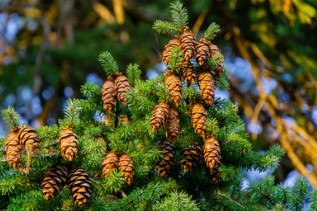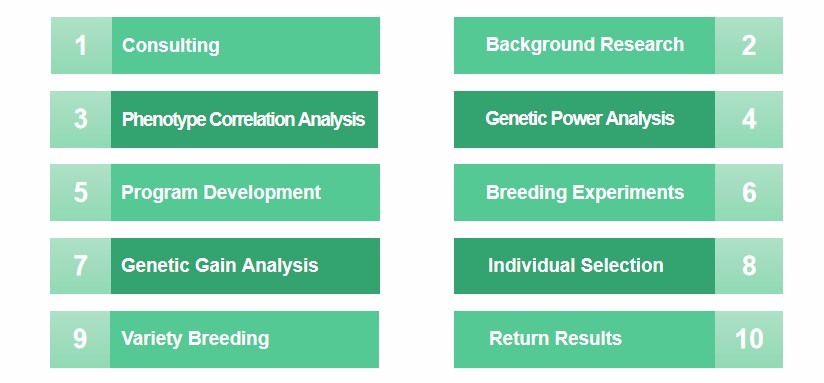
Douglas-fir (Pseudotsuga menziesii, P. menziesii) is a large evergreen tree of the family Pinaceae and the genus Fagaceae, reaching 100 m tall and 12 m in diameter at breast height. It is light-loving, likes warm and humid climates and well-drained acidic soil, and can tolerate winter and spring drought. It was originally distributed on the Pacific coast of North America, Canada, Mexico, and the United States. With the rise of plantation forestry, Douglas-fir was introduced to Germany, Sweden, New Zealand, and other countries.
The wood of Pseudotsuga menziesii has a straight grain and is solid and durable, and is used for wood with high strength requirements, such as bridges, shipbuilding, construction, railroad cars, and electric poles. Because of its beautiful texture, it can be used as furniture and can be used as raw material for wood pulp. With its fast growth rate and high resistance to adversity, Douglas-fir is an introduced species with great potential for development. Breeding programs have been initiated and developed in several countries to select and breed P. menziesii species that are more adaptable to the environment and have more excellent characteristics.
Lifeasible, as the head biotechnology company in the plant sector, has a strong presence in forest breeding. Our breeding technology, breeding systems, plant selection laboratories, and other resources support us in providing professional Pseudotsuga menziesii breeding service to our customers worldwide.
The breeding program of P. menziesii is of economic importance. Reference transcriptomes of P. menziesii have been assembled, annotated, and evaluated for reference quality. Putative single nucleotide polymorphisms have been identified to facilitate the genomic selection in Pseudotsuga menziesii breeding programs. Lifeasible has referenced this genetic information, combined with cell engineering techniques and molecular breeding technologies, to launch our multiple selection breeding services, as described below.
Clonal breeding has always been centered on the yield and quality of timber and economic forest products and is ultimately used in forestry production. The selection of breeding parents is key to improving the efficiency and effectiveness of clonal breeding in forest trees. We can adopt a comprehensive SSR genetic distance selection and excellent single parent identification dual screening strategy to build a breeding parent population and quickly and efficiently screen out high-functioning breeding parents. Then, new polyploid varieties will be selected because of the best hybrid parent selection. The integrated hybridization and ploidy advantage of forest polyploid sports can be achieved through a round of breeding process to improve multiple target traits and obtain new polyploid varieties of P. menziesii with characteristics such as faster growth and increased secondary metabolites.

Lifeasible has excellent forest tree breeding experts and abundant forest tree breeding technology reserves and is committed to providing global customers with Pseudotsuga menziesii breeding service that can comprehensively improve multi-target traits. If you have any questions, inquiries, or cooperation with our P. menziesii breeding service, please contact us.
References
Lifeasible has established a one-stop service platform for plants. In addition to obtaining customized solutions for plant genetic engineering, customers can also conduct follow-up analysis and research on plants through our analysis platform. The analytical services we provide include but are not limited to the following:
Get Latest Lifeasible News and Updates Directly to Your Inbox
Adaptive Evolutionary Mechanism of Plants
February 28, 2025
Unraveling Cotton Development: Insights from Multi-Omics Studies
February 27, 2025